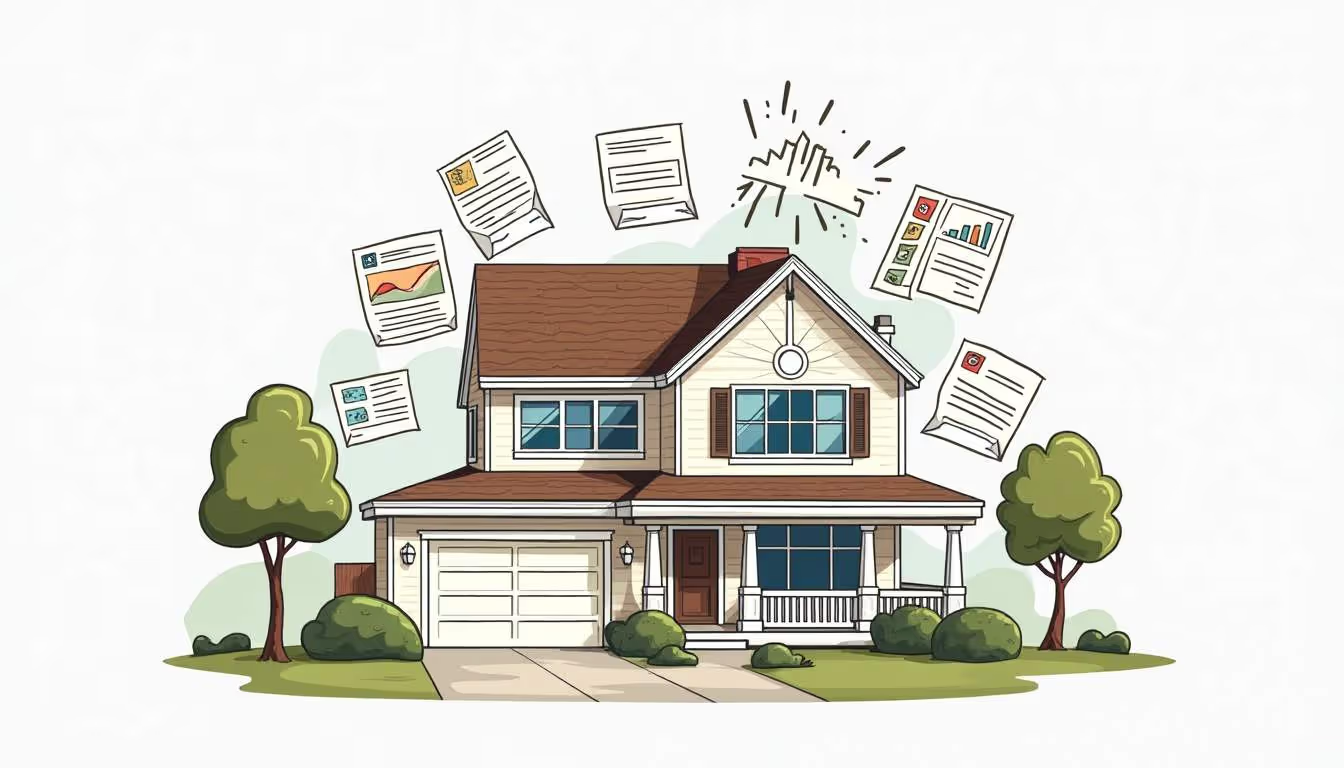How to Generate Billable Expense Reports for Vacation Rental Homes
Operating a vacation rental property encompasses a variety of tasks, from ensuring guest satisfaction to maintaining the property. A crucial yet often neglected aspect is the meticulous management of expenses. Crafting precise billable expense reports is vital for monitoring costs, ensuring financial transparency, and optimizing profitability. This guide will walk you through the steps to create effective expense reports tailored specifically for vacation rental properties.
Defining Billable Expenses
Before delving into the creation of expense reports, it's essential to grasp what constitutes a billable expense. These are costs incurred during the operation of a vacation rental that can be charged back to the property owner or included in the rental pricing. They can include anything from maintenance and cleaning fees to utility bills and supplies.

Accurately identifying these expenses is crucial for both the owner’s financial planning and the property manager's accountability. Understanding what qualifies as billable will streamline the reporting process and ensure all necessary costs are accounted for. This clarity not only fosters a transparent relationship between property managers and owners but also aids in setting competitive rental rates that reflect the true cost of maintaining the property.
Categories of Billable Expenses
Billable expenses can be divided into several categories. Common examples include:
Beyond these common categories, other expenses may not be immediately obvious but are equally important. For example, marketing costs associated with listing the property on various rental platforms can be considered billable. This includes photography services, advertising fees, and website maintenance costs. Additionally, property insurance premiums and taxes can be factored into the overall expense report, as they are crucial for protecting the investment and ensuring compliance with local regulations.
Another often-overlooked area is the cost of amenities provided to guests. This can include anything from pool maintenance to landscaping services, which not only enhance the property's aesthetic appeal but also contribute to a better guest experience. By tracking all these expenses, property managers can provide a comprehensive overview of costs that reflect the true operational expenses of the rental, ultimately benefiting both the property owner and the guests who seek a memorable stay.
Gathering Expense Data
The initial step in generating a billable expense report is to collect all relevant data. This includes invoices, receipts, and any other documentation that provides evidence of the expenses incurred. Keeping track of this information in real-time can save significant time and effort later on. Regularly reviewing your expenses can also help identify patterns or areas where costs can be reduced, ultimately contributing to better financial management.

Consider implementing a system for collecting and organizing these documents. Digital tools and apps can streamline this process, allowing for easy storage and retrieval of necessary information. Regularly updating your records will ensure that nothing is overlooked. Furthermore, setting reminders for when invoices are due or when receipts need to be submitted can help maintain a consistent workflow, preventing any last-minute scrambles to gather documentation.
Embracing Technology
In today's digital era, leveraging technology can simplify the expense tracking process. Various software solutions cater specifically to the needs of vacation rental management. These tools can automate data entry, categorize expenses, and even generate reports with just a few clicks. Some platforms also offer integration with accounting software, making it easier to manage finances and keep everything in sync.
Additionally, mobile apps allow property managers to capture receipts on the go, ensuring that all expenses are documented promptly. This not only saves time but also reduces the risk of losing important information. Many of these apps come equipped with features like optical character recognition (OCR), which can automatically extract data from receipts, further minimizing manual entry. By utilizing such technology, property managers can focus more on enhancing guest experiences rather than getting bogged down in paperwork.
Compiling the Expense Report
Once all the necessary data has been collected, the next step is to compile it into a comprehensive expense report. A well-structured report not only provides clarity but also serves as a valuable tool for financial analysis.
A typical expense report should include the following sections:
Formatting the Report
When it comes to formatting the report, clarity and professionalism are key. Use a consistent layout, with clear headings and subheadings for each section. Including a summary page at the beginning can provide a quick overview of total expenses, making it easier for owners to grasp the financial situation at a glance.
Consider using tables to present data clearly. This allows for easy comparison of expenses across different categories and time periods. Visual aids, like graphs or charts, can also enhance understanding and engagement.
Reviewing and Verifying Expenses
Before finalizing the report, it’s crucial to review and verify all expenses. This step ensures accuracy and helps identify any discrepancies or missing information. Cross-checking against bank statements or credit card bills can help confirm that all expenses have been accounted for.

Involving a second pair of eyes can also be beneficial. Having another team member review the report can help catch errors that may have been overlooked, ensuring that the final document is as accurate as possible.
Resolving Discrepancies
If discrepancies are found during the review process, it’s essential to address them promptly. This may involve reaching out to vendors for clarification or double-checking receipts. Maintaining open lines of communication with all parties involved can facilitate quicker resolutions.
Documenting any changes made during this process is also important. Keeping a record of adjustments ensures transparency and can serve as a reference for future reports.
Submitting the Expense Report
After thorough review and verification, the next step is to submit the expense report. Depending on the arrangement with the property owner, this may involve sending a digital copy via email or providing a printed version during a meeting.
When submitting the report, it’s a good practice to include a brief summary of the expenses, highlighting any significant costs or changes compared to previous reports. This not only provides context but also helps the owner understand the financial landscape of their rental property.
Engaging in Follow-Up Communication
Following up after submitting the report is essential. Engaging in a conversation with the property owner can clarify any questions they may have and provide an opportunity for feedback. This dialogue can also strengthen the relationship between the property manager and the owner, fostering trust and collaboration.
Additionally, discussing future expenses or potential improvements can lead to better financial planning and decision-making for the rental property.
Best Practices for Expense Reporting
To ensure the expense reporting process is efficient and effective, consider implementing the following best practices:
Utilizing Templates
Using templates can significantly streamline the expense reporting process. Pre-designed templates can save time and ensure that all necessary information is included. Many software solutions offer customizable templates that can be tailored to fit specific needs, making it easier to maintain consistency across reports.
Additionally, templates can help reduce errors by guiding users through the required fields and ensuring that no critical information is omitted.
Leveraging Expense Reports for Financial Insights
Generating billable expense reports is not just about tracking costs; it’s also a valuable opportunity to gain insights into the financial health of the vacation rental. Analyzing these reports can reveal trends, identify areas for cost savings, and inform future budgeting decisions.
By regularly reviewing expense reports, property managers can develop a clearer understanding of which areas are most costly and where efficiencies can be made. This proactive approach can lead to better financial outcomes and a more profitable rental operation.
Identifying Spending Patterns
Over time, expense reports can help identify trends in spending. For instance, if maintenance costs are consistently high, it may indicate a need for better property management or upgrades to the property. Conversely, if cleaning costs fluctuate dramatically, it might be worth investigating the reasons behind these changes.
Recognizing these patterns can facilitate strategic decision-making, allowing property managers to make informed choices that positively impact the bottom line.
Conclusion
Generating billable expense reports for vacation rental homes is a critical task that requires attention to detail and a systematic approach. By understanding what constitutes a billable expense, collecting data efficiently, and creating well-structured reports, property managers can ensure financial transparency and accountability.
Moreover, leveraging technology, adhering to best practices, and analyzing expense reports can lead to valuable insights that enhance the overall management of vacation rental properties. With the right tools and processes in place, managing expenses can become a seamless part of running a successful vacation rental business.
Ready to elevate your vacation rental business's financial management to the next level? VRPlatform offers a comprehensive B2B SaaS solution that automates accounting, integrates seamlessly with your Property Management Systems, and provides transparent financial reporting. With features like Owner Statements, Trust Reconciliation, and an Owner Portal, VRPlatform is designed to save you time, reduce errors, and strengthen relationships with owners. Don't miss out on the opportunity to drive trust and support growth in your vacation rental business. Sign up for a free trial of VRPlatform today and experience the benefits of automation, compliance, and transparency firsthand.



